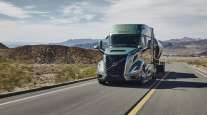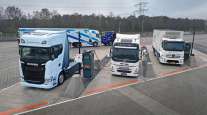Senior Reporter
Truck Makers Point to Improving Market in 3Q
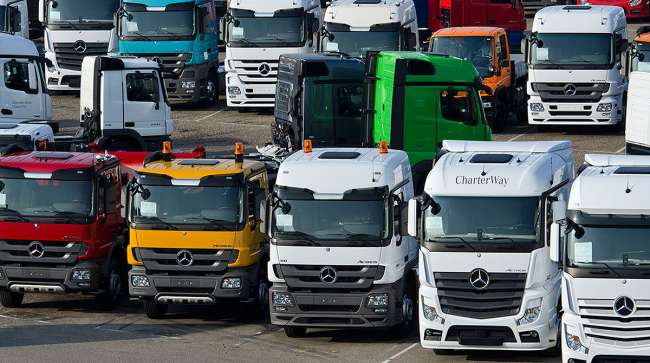
Truck makers highlighted growing demand for their equipment in third-quarter earnings reports even as they posted mixed results. One saw profitability slip but revenue climb, while two others reported an increase in net income and revenue.
Diversified manufacturer Daimler AG said net income fell 17% and revenue rose 6% in the period ended Sept. 30, with sales of 824,100 cars and commercial vehicles — up 9% from a year earlier and a quarterly record for total unit sales.
The original equipment manufacturer’s net income equivalent was $2.63 billion, or $2.36 per share, compared with $3.17 billion, or $2.83, in the same year-ago period. Based in Stuttgart, Germany, Daimler reports in euros.
Its Mercedes-Benz cars division — its largest business unit — fell 22% following increased expenses for warranties and voluntary services related to diesel engines.
Revenue rose 6% to $47.4 billion compared with $44.8 billion a year earlier.
Sales of North American trucks in Classes 6-8 rose to 45,300 compared with 31,400 a year earlier — marking its first year-over-year gain since 2015.
The North American Free Trade Agreement region is the company’s largest truck sales market.
Overall, the truck unit’s earnings before interest and taxes rose to $714 million, compared with $539 million, despite higher costs for raw materials, new technologies and future products.
“Daimler Trucks anticipates a significant increase in its total units compared with 2016. We intend to strengthen our strong market position with significantly higher unit sales in the NAFTA region,” Daimler CFO Bodo Uebber said during a recent earnings call with analysts. He did not provide figures.
Also, Daimler Trucks North America is testing wireless connected trucks on highways in Oregon and Nevada, and plans to test truck platooning in actual transport conditions in 2018.
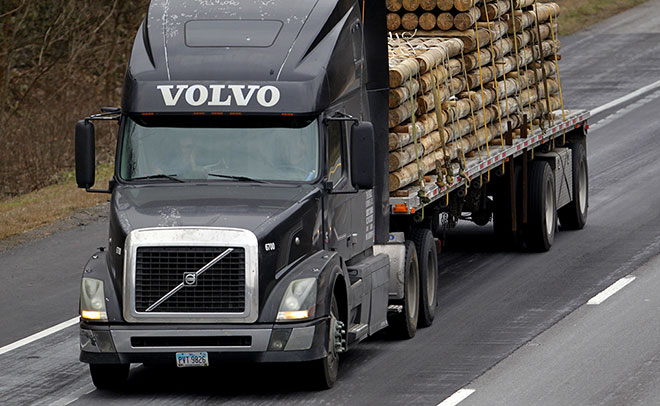
John Sommers II for Transport Topics
Meanwhile, Volvo Group reported net income more than doubled and revenue climbed. Its North American brands are Mack Trucks and Volvo Trucks North America.
Net income climbed to the equivalent of $658 million, or 32 cents, compared with $311 million, or 15 cents, year-over-year. The Gothenburg, Sweden-based company reports in krona.
Revenue rose to $9.2 billion, compared with $8.2 billion a year earlier.
In North America, the long-haul and regional-haul segments are rebounding and the construction segment continued to perform well in the quarter. Good economic conditions, increasing freight rates and stabilized used-truck prices contributed to increasing demand.
Volvo targeted retail sales in North America to hit 235,000 trucks for 2017, rising in 2018 to about 260,000 trucks. In the quarter, the company’s Class 8 orders in North America jumped to 12,096 compared with 6,764 a year earlier. Within that total, orders for Mack Trucks hit 6,763 compared with 3,903 in the 2016 period. The increase was driven by gains in the construction and highway segments for both brands.
The company noted its recent Class 8 product launches mark the biggest upgrade of its North American models in 20 years.
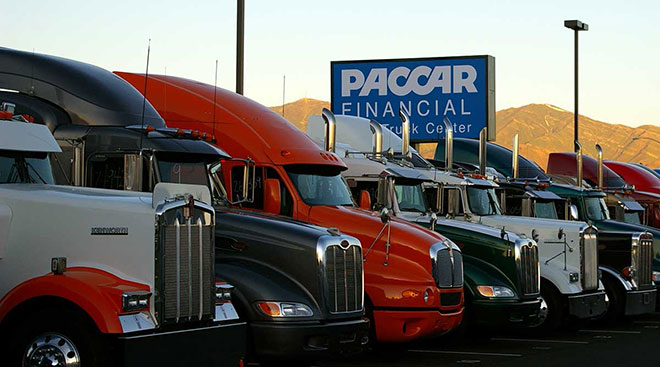
TT File Photo
Also, Paccar Inc., whose North American brands are Kenworth Truck Co. and Peterbilt Motors Co., reported net income of $402.7 million, or $1.14, compared with $346.2 million, or 98 cents, a year earlier.
Revenue rose to $5.06 billion compared with $4.25 billion.
Its third-quarter results “reflect a strong European truck market, increased Paccar market share in North America and record global aftermarket parts results,” Paccar CEO Ron Armstrong said in a statement.
Parts revenue rose to $840 million compared with $765 million in the 2016 period.
The combined Class 8 retail sales market share for Peterbilt and Kenworth in the United States and Canada rose to 30.1% compared to 27.9% in the same period last year.
Paccar said Class 8 retail sales for the United States and Canada are expected to be between 210,000 to 220,000 vehicles in 2017, and increase in 2018 to between 220,000 to 250,000 vehicles.
Paccar opened its innovation center in Sunnyvale, Calif., during the quarter to coordinate next-generation product development and identify emerging technologies that will benefit future vehicle performance, including autonomous driving and truck platooning, truck connectivity and powertrain electrification.


